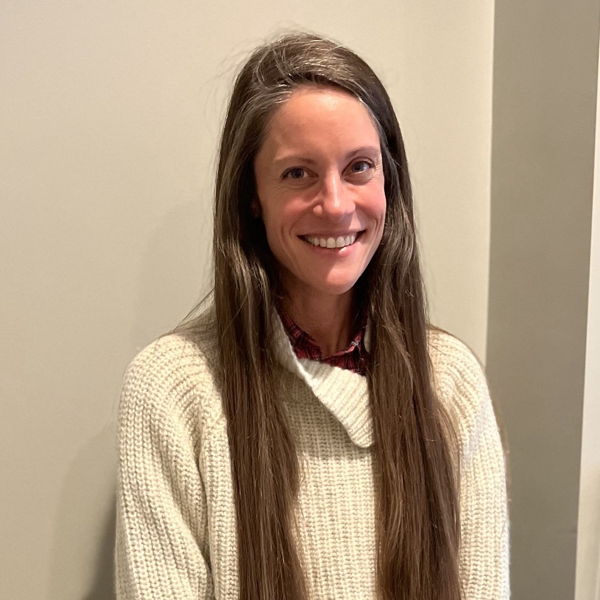-
course Info -
Content -
Ce Approvals
Why Multidisciplinary Team Treatment is Critical to Recovery
Learning Objectives
Explain at least three key benefits of a multidisciplinary approach to the treatment of eating disorders across the lifespan and all levels of care. Demonstrate the ability to apply key concepts of multidisciplinary team treatment to at least two client scenarios provided by presenters. Name at least two common challenges in multidisciplinary care and to identify presenters' proposed solution strategies.
Learning Levels
All Levels
Target Audience
Course Instructor(s)
-
 Merode "Mem" Wood, MS, LCMHCSClinical Director, Durham Adult Inpatient & Residential
Merode "Mem" Wood, MS, LCMHCSClinical Director, Durham Adult Inpatient & ResidentialMem Wood (she/her) is the Clinical Director for Inpatient and Residential at The Emily Program’s Adult Eating Disorder Treatment Centers in Durham, North Carolina. Mem attended the New College of Florida, where she completed her Bachelor of Arts degree in literature and gender studies. Mem earned her master’s in clinical mental health counseling at Florida International University. She completed her training at the Renfrew Center of South Florida, a residential treatment center for eating disorders. Before she transitioned to The Emily Program, Mem worked at the Renfrew Center of South Florida as Program Manager and Manager of the Aftercare Department, as well as a primary therapist at the residential, partial hospitalization, and intensive outpatient levels of care. Mem has been with The Emily Program (formerly Veritas Collaborative) for seven years.
-
 Joseph Crozier, MD, PhD, CEDS-CRegional Medical Director
Joseph Crozier, MD, PhD, CEDS-CRegional Medical DirectorJoe Croizer (he/him) serves as Regional Medical Director for The Emily Program’s North Carolina eating disorder treatment centers. Joe brings a unique approach to his clinical work that he credits to his training as both a psychiatrist and a clinical psychologist.
Before joining The Emily Program (formerly Veritas Collaborative) team in 2017, Joe held faculty positions in the medical schools at Duke University and the University of North Carolina (UNC). While at UNC, Joe was the Medical Director of the UNC Center of Excellence for Eating Disorders. In this role, he treated clients at the inpatient, partial hospitalization, and outpatient levels of care, as well as participated in research examining new treatment approaches for clients with eating disorders.
Joe is a passionate advocate for the care of clients with eating disorders, inspired by his experience working with clients in extreme physical and emotional distress and walking with them through recovery. He is a Licensed Clinical Psychologist and is board-certified in General and Child & Adolescent Psychiatry.
Consistent with his training in psychiatry and psychology, Joe approaches his clients with a deep appreciation for the connection between mind and body and the scope of the mental and physical impacts of eating disorders. Joe understands that recovering from an eating disorder requires sustained, gradual effort through inevitable emotional and physical struggles. He believes that multidisciplinary treatment can help clients overcome their struggles by addressing disordered patterns of thoughts and feelings and reconnecting them to their deeply held values and goals.
-
 Elysse Thebner Miller, MPH, RDN, LDN, CEDS-CRegional Nutrition Manager, North Carolina
Elysse Thebner Miller, MPH, RDN, LDN, CEDS-CRegional Nutrition Manager, North CarolinaElysse Thebner Miller (she/her) is the Regional Nutrition Manager at The Emily Program’s North Carolina Treatment Centers. Elysse attended Ithaca College, where she completed her Bachelor of Science degree in health sciences/pre-medical studies with an emphasis in nutrition, and minors in anthropology and art. Elysse earned her master’s in public health (with a nutrition focus) from the University of North Carolina at Chapel Hill Gillings School of Global Public Health. She completed her dietetic internship at UNC Center for Excellence for Eating Disorders (CEED) and Duke University.
Before joining The Emily Program (formerly Veritas Collaborative), Elysse worked as a Registered Dietitian (RD) at the UNC CEED clinic, working with individuals in inpatient, partial hospitalization, and outpatient levels of care. She also served as a research dietitian in trials for anorexia nervosa, bulimia nervosa, and binge eating disorder.
Disclosure
References
-
Kalata, A. H., & Miller, E. T. (2024). DBT Principles and Strategies in the Multidisciplinary Treatment of Eating Disorders. Taylor & Francis.
-
Crone, C., Fochtmann, L. J., Attia, E., Boland, R., Escobar, J., Fornari, V., ... & Medicus, J. (2023). The American Psychiatric Association practice guideline for the treatment of patients with eating disorders. American Journal of Psychiatry, 180(2), 167-171.
-
Pehlivan MJ, Miskovic-Wheatley J, Le A, Maloney D, Research Consortium NED, Touyz S, Maguire S. Models of care for eating disorders: findings from a rapid review. J Eat Disord. 2022 Nov 15;10(1):166. doi: 10.1186/s40337-022-00671-1. PMID: 36380363; PMCID: PMC9667640.
-
Heruc, G., Hurst, K., Casey, A., Fleming, K., Freeman, J., Fursland, A., ... & Wade, T. (2020). ANZAED eating disorder treatment principles and general clinical practice and training standards. Journal of Eating Disorders, 8, 1-9.
-
Monteleone, A. M., Fernandez-Aranda, F., & Voderholzer, U. (2019). Evidence and perspectives in eating disorders: a paradigm for a multidisciplinary approach. World psychiatry : official journal of the World Psychiatric Association (WPA), 18(3), 369–370. https://doi.org/10.1002/wps.20687
-
Alexander, J., & Treasure, J. (Eds.). (2013). A collaborative approach to eating disorders. Routledge.
CE Process Info
Content
-
Materials3 parts
-
Presentation Slides
-
Video recording 1
-
Audio recording 3
-
-
American Psychological Association (APA)
The Emily Program is approved by the American Psychological Association to sponsor continuing education for psychologists. The Emily Program maintains responsibility for this program and its content.
-
National Board for Certified Counselors (NBCC)
The Emily Program has been approved by NBCC as an Approved Continuing Education Provider, ACEP no. 7166. Programs that do not qualify are clearly identified. The Emily Program is solely responsible for all aspects of the programs.
-
CE Hours 1 -
Type Self-Paced -
Publication Date Aug 1st, 2025
Reset password
We sent a reset password link to the email address you provided.
{{reset.email}}
If you do not see the email, try checking your junk or spam folder.
If you don't receive a link in the email you provided, please click the button below to resend the
verification email.
Please wait {{timer}} seconds to resend
Sign in
Sign in
Thanks for signing up!
We sent an verification email to the address you provided. Please check your email to verify your email address.
{{signup.email}}
If you do not see the email, try checking your junk or spam folder.
If you don't receive a link in the email you provided, please click the button below to resend the verification email.
Please wait {{timer}} seconds to resend
Sign up
Shopping Cart
-
{{ item.name }} ({{ item.courses.length }} courses)
{{ item.credit_hours }} Credits
{{ item.coupons.map((c)=> c.code).join(', ') }}${{ item.totals.price }}${{ item.totals.total_price }}
Cart is empty
Thank you for your purchase
To access the course content, click the button below. Enrolled courses may be accessed at any time by going to your Account and clicking Courses